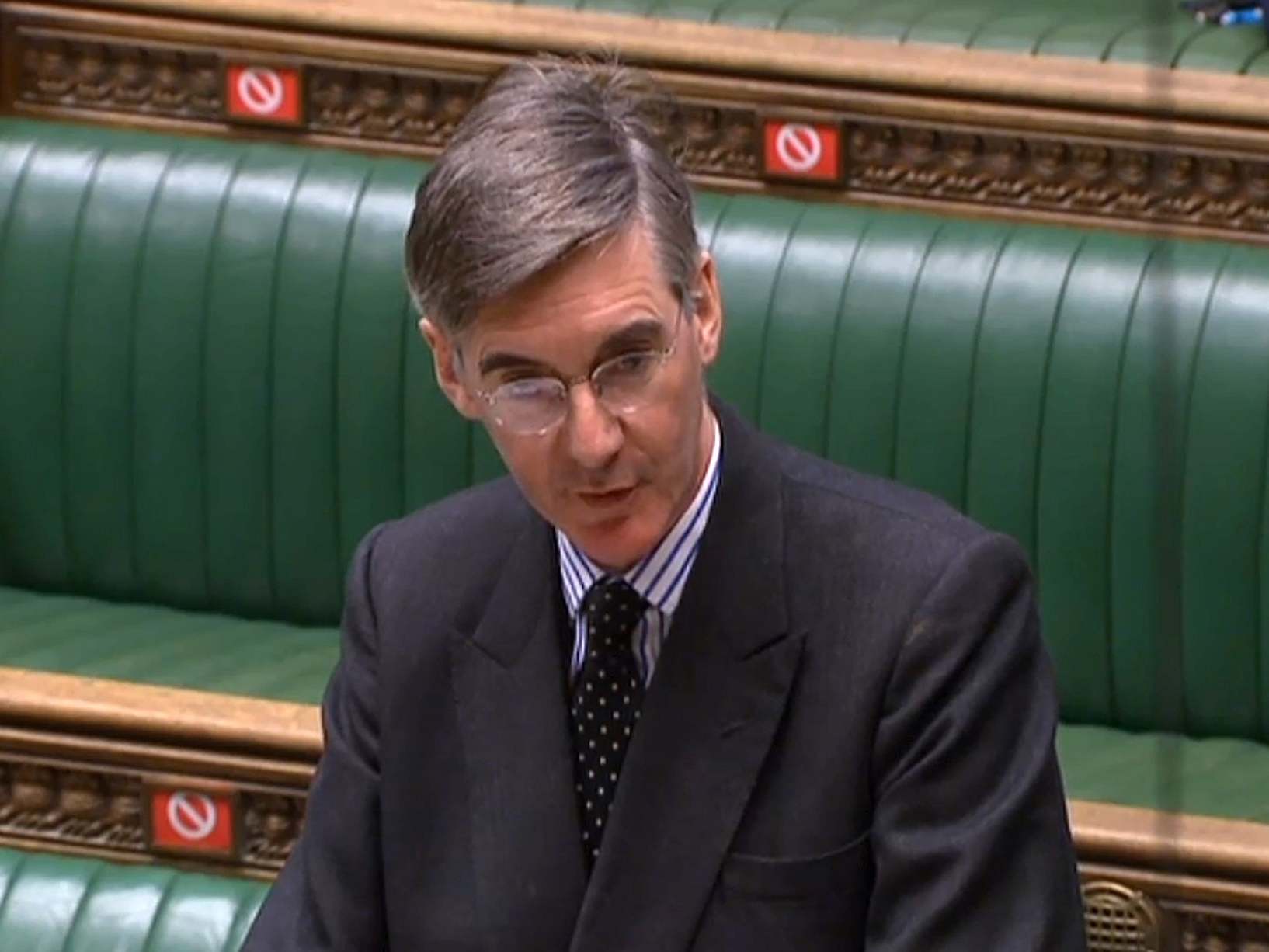It is not right for MPs to rush back to Westminster. They should set an example instead
Editorial: The recovery depends on getting the epidemic under control. Part of that is keeping as many people working from home for as long as possible

As a sort of living parliamentary fossil, the leader of the House of Commons, Jacob Rees-Mogg, might be expected to want to see MPs properly return to Westminster. He has made his views plain, and called on members to come back to their usual place of toil, and wind down the experiment with remote working.
No doubt Mr Rees-Mogg would like to do away with the stripy tape across the carpets, which makes the place look more like a crime scene (appropriately or not); and to tear down the incongruous giant monitors stuck like carbuncles around Pugin’s neo-Gothic masterpiece.
So this elegant anachronism has urged MPs to “lead by example” at a time when ministers are actively encouraging workers in construction, manufacturing, scientific research and other areas to get back to work. It is a noble clarion call, but one that raises some rather difficult questions, both for parliament and more widely.
For one thing, Mr Rees-Mogg seems at odds with his own government’s advice. The rule is that if someone can work at home, then they should do so. With some adjustments, and a few technical stumbles (including an F-bomb for Hansard to deal with), parliament has worked perfectly well in its new “hybrid” mode. MPs have been able to ask questions of ministers, table motions, engage in select and other committee work, attend to constituents, talk to journalists, plot, lobby and gossip from the comfort of their own (sometimes multiple) homes.
Like many other workplaces, necessity has been the mother of invention. The Covid crisis has forced organisations to make remote working succeed, because they had no choice in the matter. Even the most collaborative of enterprises have had to disperse – and with remarkable success. Broadband services have not collapsed under the strain, and people are accustomed to video-conferencing.
Politics is traditionally something that is carried out in debating chambers and committee rooms, and it is unwise for our politicians and civil servants to spend time in such proximity to one another. The unusually high rate of Covid-19 in 10 Downing Street should serve as a reminder of the risks staff take during a pandemic. Setting an example is one thing, but MPs should not be setting the wrong example, even though a packed baying chamber for prime minister’s questions would make for better TV and an easier life for the prime minister.
The Palace of Westminster is fortunate in being able to provide parking spaces for MPs and peers, but many of those now being asked to return to work have no such luxury, and are forced to use public transport – with all the dangers of infection that implies. Others will also have no access to childcare, especially as nurseries and schools remain closed for most children. Many places of work, even with goodwill and plenty of ingenuity, will not be able to enforce social distancing. This, it has emerged, has become the unsurmountable obstacle to opening schools and universities. Teachers, other staff and some parents are still too frightened of the virus to enter their usual premises.
And so even the relatively modest steps being taken in England are laden with real practical anxiety-inducing problems, in addition to the confusion that arises from the initial mixed messaging.
The economy, as the latest figures show, is already heading into a recession, and the recovery – and saving livelihoods – depends on getting the epidemic under control at last. Part of that is keeping as many people working from home for as long as possible, helping to push the famous R rate down, and preventing a second peak of infection, a second forced lockdown and another slump in economic activity, with mass unemployment to follow. MPs should be doing their bit too, to save lives and the economy. There is no great public appetite for them to get back to the green benches.
Join our commenting forum
Join thought-provoking conversations, follow other Independent readers and see their replies
Comments